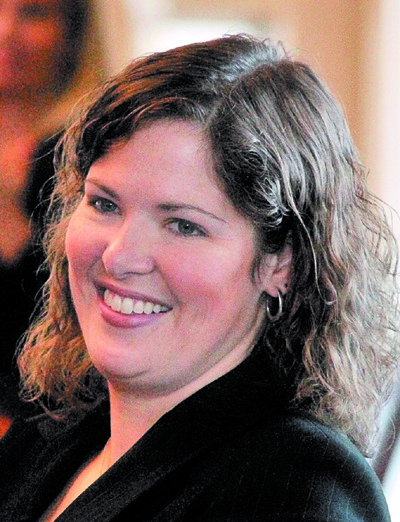The Republican running for Maine’s 2nd Congressional District says migrant children pouring illegally over America’s southern border should be returned home, while the Democrat says the problem demands a broad legislative approach.
For months, the U.S. border with Mexico has seen a crush of unaccompanied minors and families from El Salvador, Honduras and Guatemala entering the country illegally, often to flee their home countries because of violence or to join family already here.
In the nine months from October to June’s end, nearly 58,000 unaccompanied minors were apprehended by U.S. border officials. Also, 55,000 families were apprehended in those six months, six times the total of the year before.
By September’s end, the government says 90,000 unaccompanied children could be caught entering the U.S. compared with just 28,000 the year before.
Though Maine is about 2,000 miles from the Texas-Mexico border and has been the whitest state in the nation, immigration has been a hot topic here of late, fueled largely in recent days by Gov. Paul LePage’s response to the national crisis.
This week, LePage’s office said that eight children from the border were placed in the state between January and June. Like many governors in non-border states, LePage, a Republican running for re-election against Democrat U.S. Rep. Mike Michaud and independent Eliot Cutler, was miffed that the federal government placed border children in the state without first notifying him.
Democrat Emily Cain and Republican Bruce Poliquin, running to replace Michaud in the 2nd District, predictably differ on the issue, largely along party lines.
Poliquin wants the U.S. to return the children home, blaming the crisis on weak border enforcement by the administration of Democratic President Barack Obama.
Cain said in a statement that she supports “comprehensive reform” that secures borders, treats families humanely and “provides a path to citizenship” for undocumented immigrants. That path has also been proposed by Obama.
In an interview, Poliquin, an ex-state treasurer from Oakland, blamed the crisis on weak federal enforcement on the border, saying “not only is it a humanitarian crisis, it’s unfair to American taxpayers.”
He favors a stronger stance at the border, supporting returning children who cross over to their home countries “humanely, safely and quickly.” That would require a law change, but it is favored by many congressional Republicans already.
“This border crisis is absolutely the wrong message to send to the world,” Poliquin said. “It makes a statement that America cannot or will not solve some of its most basic issues.”
In a statement, Cain, a state senator from Orono, criticized Republicans for not rallying around reform, calling the crisis “a real-life example of what happens when people put politics ahead of the work that needs to be done in Washington.”
“We have an opportunity nationally to bring leaders from all sides to the table to find a way to secure the border and work to solve the crisis,” she said.
Under a 2008 federal law, unaccompanied children who cross the border illegally from countries other than Canada and Mexico must be put through deportation hearings, whereas children from those two countries are usually turned back immediately.
At the border, Central American children are initially detained and then must be released into the least-restrictive settings possible, often into the care of family members already in the U.S. — legally or illegally — before their hearing.
However, the system is backlogged. The Associated Press has said it will likely be years before many children make their cases before a judge.
The Obama administration has asked for $3.7 billion in emergency funding to deal with the problem. However, leaders of the divided chambers of Congress advanced competing plans on it this week, signaling an impasse on the issue.
Senate Democrats have proposed spending $2.7 billion to put more immigration judges, detention centers and other resources on the border. House Republicans have announced plans to provide $1.5 billion in new money, sending the National Guard to the border and changing the 2008 law to make it easier to turn children away.
Some harder-line Republicans have been wary of that plan. Conservative independent Blaine Richardson, a retired Navy captain from Belfast and the third candidate in the 2nd District race, has suggested militarizing the border.
“Republicans and Democrats need to come together to pass comprehensive immigration reform before the solution becomes even more costly,” she said.
Poliquin agreed with elements of Washington Republicans’ plan, but demurred on whether the U.S. should send the National Guard to the border, as has been done in Texas, saying just that “all means necessary” should be used to repatriate the children.
The U.S., Poliquin said, should send a strong message to people in those countries: “They will be returned if they enter our country illegally.”
“America should not be part of this humanitarian crisis,” he said. “We should try to solve it.”
Michael Shepherd — 370-7652
Twitter: @mikeshepherdme
Send questions/comments to the editors.



